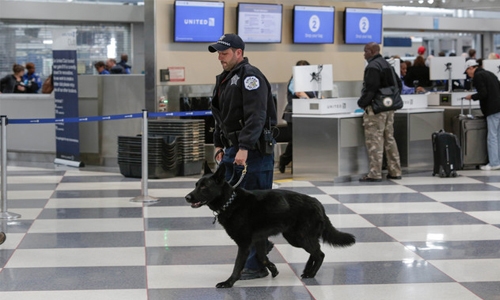Brussels bombs expose transport vulnerabilities
Paris : The Brussels bombings exposed the vulnerability of publically accessible zones in crowded airports, railway stations and subway systems to terror attacks, and it is a risk that can never be completely eliminated, security analysts say.
Islamic State-linked jihadists targeted that weak spot when they detonated bombs that tore through the main hall of Brussels airport and blew up a city-centre metro train, killing about 30 people and wounding more than 200.
The bombers carried out their attacks in high profile transport hubs in the Belgian capital, home of NATO headquarters and the European Union, during a period when the country was under a high security alert just four days after the arrest in Brussels of Salah Abdeslam the prime suspect in the Paris attacks four months earlier that killed 130 people.
"While aviation and public transport in general remain an attractive target for terrorist groups, the risk can never be 100 percent eliminated as the threat remains," said Ben Vogel, editor of IHS Jane's Airport Review.
The challenge of stopping an attack is greater when the perpetrators target unsecured areas such as the check-in area of the departure hall in Brussels' Zaventem airport, prior to the passport and baggage controls, he said.
"This causes a headache for security agencies that have focused primarily on the passenger screening checkpoint, with some success as terrorist organisations seem to have altered their modus operandi," Vogel said.
In Europe, most airport arrival and departure halls are freely accessible outside of the secured zone that lies beyond baggage, passport and customs controls.
Related Posts

